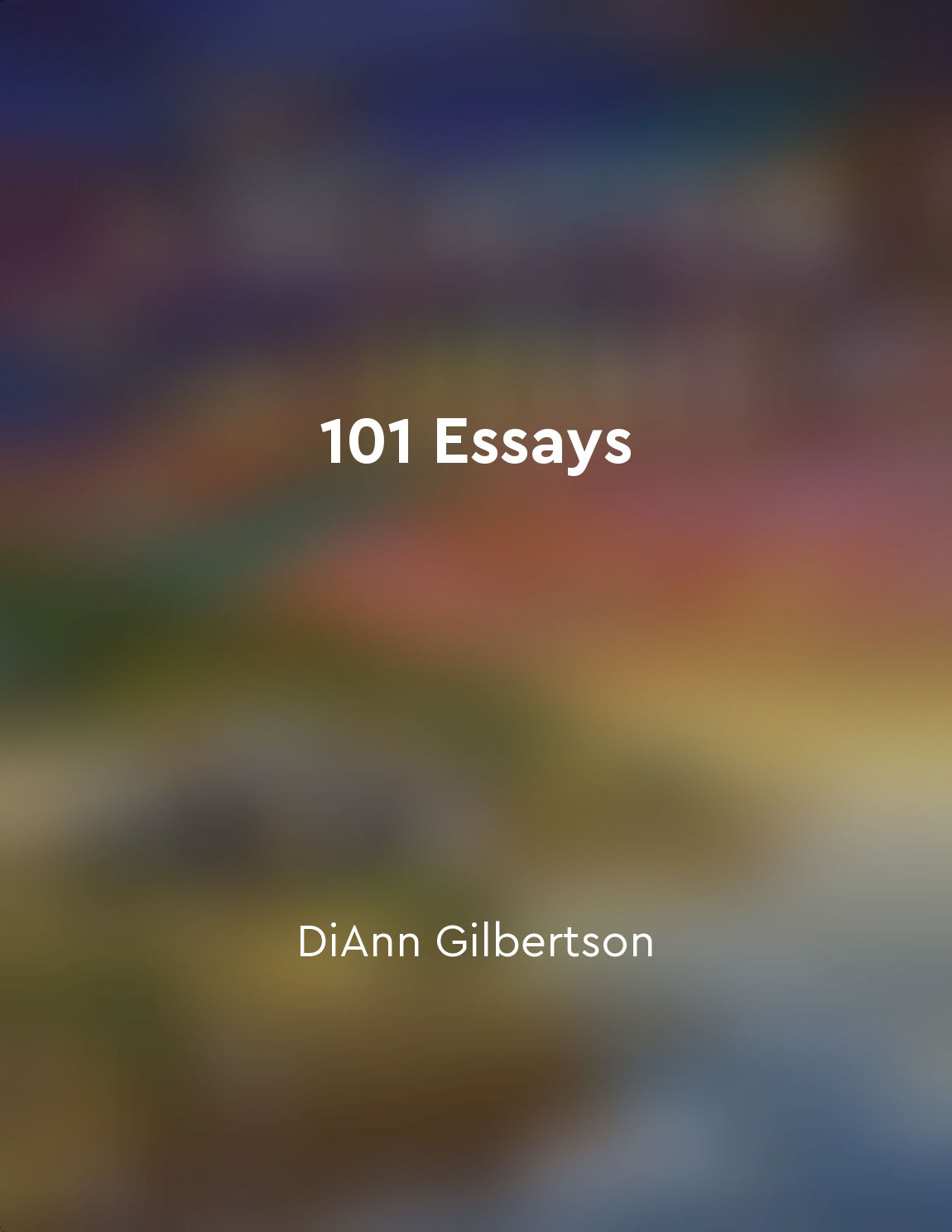Master the art of effective revision and editing from "summary" of Creative Writing For Dummies by Maggie Hamand
Effective revision and editing are essential components of the writing process. It is not enough to simply write a first draft and call it a day. In order to truly hone your writing skills and produce high-quality work, you must be willing to put in the time and effort to revise and edit your work. Revision involves looking at your writing with a critical eye and making changes to improve clarity, coherence, and overall effectiveness. This may involve reorganizing paragraphs, adding or deleting information, or refining your language to better convey your ideas. The goal of revision is to ensure that your writing is as clear, engaging, and impactful as possible. Editing is a more detailed process that focuses on correcting errors in grammar, punctuation, spelling, and syntax. It also involves checking for consistency in tone and style, making sure that your writing flows smoothly and maintains a cohesive voice throughout. Editing requires a keen attention to detail and a willingness to engage with your writing on a granular level. To master the art of effective revision and editing, it is important to approach your work with a critical mindset. Be willing to challenge your assumptions and make tough decisions about what to keep and what to cut. Seek feedback from others, whether it be friends, family, or writing groups, to get an outside perspective on your work. When revising and editing, pay attention to the logical sequencing of your ideas. Make sure that your writing flows smoothly from one point to the next, using transition words and phrases to guide your reader through your argument or narrative. This will help ensure that your writing is easy to follow and engaging for your audience. Consistency is key when it comes to revision and editing. Make sure that your writing maintains a consistent tone and style throughout, and be diligent about following grammar and syntax rules. This will help give your writing a polished and professional feel, making it more appealing to readers. In order to effectively revise and edit your work, it is important to have a deep understanding of the context in which you are writing. Consider your audience, your purpose, and the overall message you are trying to convey. Tailor your revisions and edits to suit the specific needs of your writing project, ensuring that your final product is well-suited to its intended audience. By mastering the art of effective revision and editing, you can take your writing to the next level. Your work will be clearer, more engaging, and more impactful, leaving a lasting impression on your readers. Embrace the revision and editing process as anSimilar Posts
Techniques for improving knowledge retention
To enhance knowledge retention, it is essential to employ effective techniques that aid in better understanding and long-term m...
Consider the impact of your words on others
When we write about our lives, it is important to remember the power that our words can hold over others. The stories we tell, ...
Alternatives for expressing complex ideas briefly
Expressing complex ideas can be a challenge, especially when trying to convey them briefly. However, there are several alternat...
Show, don't tell
The concept of "Show, don't tell" is a fundamental principle in writing that emphasizes the importance of using descriptive lan...

Practice is key to improving language skills
To truly enhance your language skills, there is no substitute for consistent practice. The more you immerse yourself in the lan...
Guide students in setting goals for their writing
One effective way to support students in developing their writing skills is to help them establish clear goals for their writin...
Start with a strong opening to hook your readers
It's essential for a writer to grab the reader's attention right from the start. The opening of a story is like a handshake, a ...
International perspectives on Japanese teaching
The exploration of international perspectives on Japanese teaching involves examining various approaches and methods used by ed...
Subtext conveys meaning
Subtext is the hidden message, the unspoken thoughts that lie beneath the surface of a conversation or a narrative. It is the u...

Techniques for effective conclusion writing
The conclusion is a crucial part of any essay, as it is where the writer brings all the main points together and leaves the rea...
